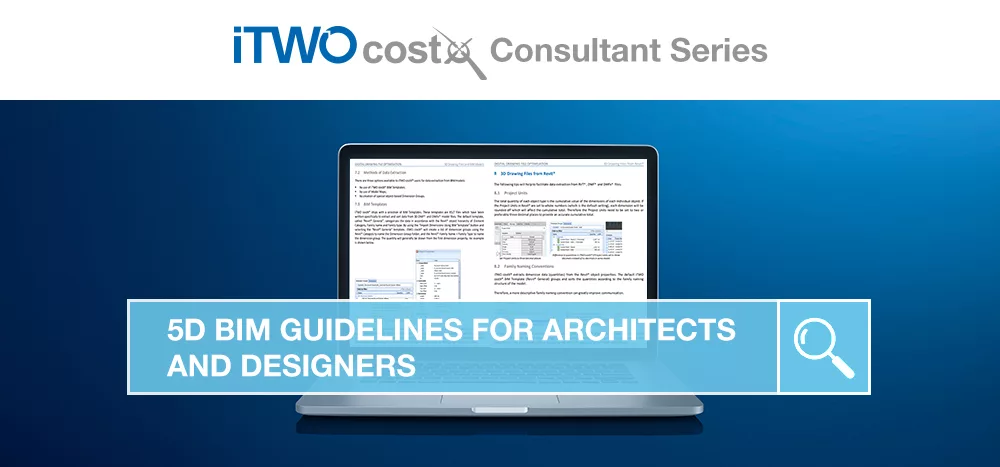24 mins read
The Importance of Bidding in Construction

For a variety of businesses, bid management is one of the most important processes for gaining new business and retaining clients. Every contractor needs an effective bid project management process to improve efficiency and organization. From soliciting the bid (where an agency issues an invitation to companies to work on a construction job) to submitting documentation about the project timeline and costs, an efficient bid management process will prove why your company will be successful in securing the tender project.
However, the construction bidding process is an area where many fall short. Many businesses overlook this, but it’s beneficial to have a dedicated bid manager who uses the right tools for an optimized outcome. His or her job is to oversee the entire bidding process, right from selecting relevant bids to managing the team who will be writing them. A bid manager must have a thorough understanding of the commercial and operational aspects of the business for them to write parts of the bid and select the contributors who will best be suited to enhance the bid with their own knowledge and specific information.
If you want to win more bids, you will need proper bid management software, processes, and expertise on your side. Let’s delve into the intricacies of bid management and why it is so important.
What is Bid Management?
Bid management is the systematic preparation, submission, and control of proposals in response to client invitations for construction projects. The goal is to present a competitive proposal showcasing the contractor’s qualifications and capacity to handle a project successfully.
The bid management process consists of five steps, namely bid solicitation, bid submission, bid selection, contract formation, and project delivery.

- 1) Bid solicitation
During the bid solicitation phase, an organization issues a request for proposal (RFP), a request for quote (RFQ), or an invitation for bid (IFB) to express public interest in receiving bids for a construction project. From there, a tender manager prepares a more detailed package which includes details about deadlines, expectations, specifications, supporting documents, and more. Depending on the type of bid process (more on this later), the invitation to bid will either be open to all or to a limited number of applicants they prefer.
- 2) Bid submission
In the bid submission phase, the interested parties assemble their bid and submit it to the organization accepting the bids. To create an accurate bid, the contractors must create an accurate estimate of project costs, including labor, materials, equipment, and profit margin. Project timelines are also included in the submission, as well as information about their business.
- 3) Bid selection
During the bid screening process, the organization receiving bids scrutinizes the project proposals submitted by external contractors. This may take a long time – often weeks or even months – but it’s crucial to meticulously assess each proposal in-depth. Upon reviewing every submission, the organization will choose which vendor or vendors they want to award with the project.
- 4) Contract formation
Once a vendor has been selected, there will be discussions between them and the contractors where terms are agreed upon for the project to be completed successfully. These negotiations may involve deliberations on issues such as access to resources, compensation, and project timelines.
- 5) Project delivery
The project delivery stage is the final phase of the bidding and tendering process. It signifies the formal commencement of project activities, spanning across all phases from start to finish. Upon completion, the client receives all the key deliverables and project outcomes that were discussed in the initial planning phase.
Why Bidding is Important
▷ Securing Profitable Agreements
Construction bid management centers on getting contracts that not only generate profit, but also align with a construction company’s abilities and goals. A successful bid management process entails assessing project needs, the competitive environment, and client demands to create attractive proposals that shine in intense competition.
Bid management empowers construction firms to secure contracts that not only generate revenue, but also foster long-term growth and sustainability by using strategic pricing and showcasing distinctive selling points.
▷ Ensuring Project Feasibility
A successful bid management process is crucial not only for securing contracts, but also in evaluating project feasibility and recognizing potential risks and obstacles. By implementing careful cost estimation, resource allocation, and risk assessment, bid management provides valuable information into a proposed project’s viability.
To increase their chances of success and avoid expensive errors, construction firms can conduct thorough due diligence while bidding. Identifying potential concerns beforehand allows for informed decisions on whether to proceed with the project or rather allocate resources elsewhere. This reduces risks and enhances overall outcomes in a proactive manner.
▷ Optimizing Resources
The process of bid management in construction acts as a guide for enhancing resource allocation and operational efficiency during all stages of a project. Through precisely estimating costs, timelines, and necessary resources, bid management helps construction companies to distribute assets tactically whilst reducing waste, which ultimately boosts profitability.
Bid management involves effectively allocating resources, including labor, materials, equipment, and subcontractors. This approach ensures that project objectives are met while maintaining profitability margins. Efficient resource allocation is crucial for completing projects within the specified time frame and budget constraints with maximum quality standards.
▷ Improving Customer Connections
An effective bid management strategy involves more than simply winning contracts; it establishes the groundwork for forming long-lasting partnerships with clients. By exhibiting a comprehensive comprehension of client needs, providing inventive resolutions, and fulfilling commitments, bid management fosters reassurance and reliance among clients.
Effective bidding necessitates transparent and unambiguous communication, which keeps clients informed and engaged throughout the bidding process. By promoting open dialogue and cooperation, bid management lays the groundwork for successful project delivery while establishing a strong base for future collaborations.
Bid Management Roles And Responsibilities

1. Clients
Usually, clients initiate and propel construction projects. In the construction bidding process, they take up responsibility for inviting bids from potential contractors, scrutinizing proposals submitted by them and ultimately selecting one that can bring their project vision to life most effectively. Their duties encompass identifying the parameters like scope, prerequisites and goals of a project, preparing tender documents, and finalizing as well as bargaining on contractual provisions with chosen contractors.
2. Contractors
Contractors are accountable for carrying out building projects in accordance with the client’s criteria and demands. During the bid management phase, contractors scrutinize tender papers, generate proposals, and present a detailed overview of their approach to the project along with construction cost estimates and deadlines.
Responsibilities include examining tender documents and evaluating project viability, as well as producing precise and competitive offers in accordance with designated deadlines.
3. Architects and engineers
Architects and engineers collaborate with a client to discuss and implement the project design and requirements. These professionals are essential in bid management as they bring their specialized knowledge to the table by providing support services for the various stakeholders.
4. Project Managers
Supervision of project planning, implementation, and completion falls under the responsibility of project managers. During bid management, they collaborate with relevant stakeholders like customers and vendors to develop comprehensive plans that encompass all aspects such as timelines and budgets, while also ensuring alignment between construction bids and the objectives or constraints of the projects at hand.
5. Subcontractors and Suppliers
Suppliers and subcontractors play integral roles in providing materials, equipment, and specialized services required for construction projects. During the bid management process, contractors work closely with these professionals to generate bid proposals and cost assessments, while guaranteeing the accessibility of essential resources required during project execution.
Assisting contractors with precise cost estimates for materials and services, collaborating in the drafting of project schedules and procurement plans, as well as attending bid clarification meetings and negotiations with clients are all part of the responsibilities.
Types of Bidding in Construction
Not all bids are created equal, and understanding the different types of bidding in construction is essential for winning a successful bid. There are four common types of bidding in construction, namely open tendering, selective tendering, negotiated tendering, and serial tendering.
▷ Open Tendering
Open tendering, also known as competitive bidding or public tendering, is a commonly used procurement method in construction projects. In open tendering, the client advertises the proposed project publicly, which means it is available to all interested contractors. Every prospective bidder receives the bid requirements, including project specifications, terms, and conditions.
▷ Selective Tendering
Selective tendering only allows suppliers to submit their tenders by invitation. Selective tendering empowers clients with determining contractors based entirely upon certain qualifications, like their past performance record, skill set, and reputation in the industry.
▷ Negotiated Tendering
Negotiated tendering involves the buyer approaching a single supplier to ask them to deliver the work. This is usually based on the supplier’s track record in the industry, or a previous relationship with the supplier. Following this, the buyer and supplier will negotiate the terms of the contract.
▷ Serial Tendering
Serial tendering generally involves the preparation of tenders based on a typical or notional bill of quantities or schedule of works. This approach is commonly used for phased construction projects or projects with multiple components that can be completed independently.
How To Implement a Successful Bid Management Strategy

▷ Identify the right opportunities
To establish a winning bid management strategy, you need to pinpoint the right opportunities that match your firm’s skills, capabilities, and strategic goals. Do a comprehensive market analysis to identify upcoming ventures, understand client needs, and evaluate your competitive positioning in the market.
▷ Do a competitor analysis
To create bids that outshine the rest, you must comprehend your opponents’ skills, shortcomings, and strategies. Undertake a thorough competitor analysis to evaluate their past performance, pricing methodologies, and areas of specialization. You can then leverage this insight to differentiate your offerings and gain a competitive advantage.
▷ Go through the basics
To properly commence the bid management process, you must have a solid understanding of the fundamentals. This includes project requirements, specifications, deadlines, and budget constraints. Carefully examine tender documents and address any vagueness or doubts with the customer for your offer to accurately meet their objectives and requirements.
▷ Implement a collaborative plan
An effective bid management strategy involves flawless coordination and correspondence amongst in-house teams, subordinates, vendors, and other parties participating in the bidding procedure. Formulate a cooperative strategy that defines everyone’s duties, obligations, and deadlines, while creating clear channels of communication to align everyone in working towards a shared goal. This is an important step as construction collaboration is fundamental and will be at the center of the work if your company is awarded the project.
▷ Benefit from modern estimating software
By investing in modern software solutions such as Candy estimating software, you can enhance the bid management process and boost accuracy while reducing effort. Take advantage of this advanced technology to create comprehensive cost breakdowns, generate accurate bids, and effectively monitor project expenses. Using estimation tools guarantees insightful data on project profitability for informed decision-making, while optimizing the allocation of resources.
▷ Don’t submit your bid at the last minute
To avoid the risks of errors or omissions, submit your bid well in advance of its deadline. By doing this, you not only demonstrate professionalism, but also show your dedication towards completing the project competently. Use the extra time available for reviewing your bid meticulously by identifying any potential issues before submission, while ensuring that it fulfils all the client’s requirements.
More useful tips how to win tenders you will find in this blog post!
Conclusion
Bid management should always be taken seriously, and it should use the best software and processes available. It is crucial to invest in proper bid management software, such as RIB Candy, RIB 4.0 or RIB CX. These modern software solutions streamline the bidding process by automating the different tasks involved in the bidding process. This eliminates the need for manual data entry and reduces the chances of error, while increasing the overall efficient use of time and resources.
Improving the bid-to-win ratio and taking on new projects is something that all contractors need to focus on. With the right bid management strategy, you can easily achieve this.
Ready to Build Better? Book a demo today!
Most Recent
24 mins read
15 mins read
25 mins read
15 mins read

E-BOOK











